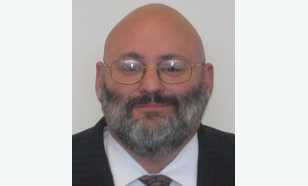Leonard Deutchman

July 07, 2015 | The Legal Intelligencer
The USA Freedom Act and Fourth Amendment JurisprudenceThe USA Freedom Act of 2015, enacted June 2, sharply curtails the ability of the National Security Agency and FBI to obtain, without judicial approval, transactional telephone records from carriers and to search the metadata contained in those records without judicial approval as well.
By Leonard Deutchman
10 minute read

July 06, 2015 | The Legal Intelligencer
The USA Freedom Act and Fourth Amendment JurisprudenceThe USA Freedom Act of 2015, enacted June 2, sharply curtails the ability of the National Security Agency and FBI to obtain, without judicial approval, transactional telephone records from carriers and to search the metadata contained in those records without judicial approval as well.
By Leonard Deutchman
10 minute read

June 02, 2015 | The Legal Intelligencer
Properly Discharge E-Discovery Duties to Avoid TroubleIn Procaps S.A. v. Patheon, No. 12-24356-Civ-Goodman (S.D. Fl. April 24, 2015), the court granted defendant Patheon Inc.'s motion to depose a court-appointed digital forensics expert who had conducted analysis regarding possible spoliation by plaintiff Procaps.
By Leonard Deutchman
9 minute read

June 01, 2015 | The Legal Intelligencer
Properly Discharge E-Discovery Duties to Avoid TroubleIn , No. 12-24356-Civ-Goodman (S.D. Fl. April 24, 2015), the court granted defendant Patheon Inc.'s motion to depose a court-appointed digital forensics expert who had conducted analysis regarding possible spoliation by plaintiff Procaps.
By Leonard Deutchman
9 minute read

May 05, 2015 | The Legal Intelligencer
What Sanctions Should Be Imposed for Spoliation?In Crews v. Avco, No. 70756-6-I (Wash. Ct. App. April 6, 2015), the Washington Court of Appeals affirmed the trial court's finding of spoliation by defendant Avco Corp. and, more importantly, its imposition of devastating sanctions, including the deeming of all of plaintiff Paul Thomas Crews' allegations admitted and the striking of all of the defendant's affirmative defenses.
By Leonard Deutchman
9 minute read

May 04, 2015 | The Legal Intelligencer
What Sanctions Should Be Imposed for Spoliation?In , No. 70756-6-I (Wash. Ct. App. April 6, 2015), the Washington Court of Appeals affirmed the trial court's finding of spoliation by defendant Avco Corp. and, more importantly, its imposition of devastating sanctions, including the deeming of all of plaintiff Paul Thomas Crews' allegations admitted and the striking of all of the defendant's affirmative defenses.
By Leonard Deutchman
9 minute read

April 07, 2015 | The Legal Intelligencer
A Predictive Coding Opinion That Predicts the Past?In Rio Tinto PLC v. Vale S.A., 14 Civ. 3042 (S.D.N.Y. March 2, 2015), U.S. Magistrate Judge Andrew Peck of the Southern District of New York, one of brightest and most informed jurists writing about e-discovery, summarized how, in the past three years, "the case law has developed to the point that it is now black-letter law" that courts will permit producing parties in e-discovery matters to use technology-assisted review and, in particular, predictive coding to review documents for production.
By Leonard Deutchman
9 minute read

April 06, 2015 | The Legal Intelligencer
A Predictive Coding Opinion That Predicts the Past?In , 14 Civ. 3042 (S.D.N.Y. March 2, 2015), U.S. Magistrate Judge Andrew Peck of the Southern District of New York, one of brightest and most informed jurists writing about e-discovery, summarized how, in the past three years, "the case law has developed to the point that it is now black-letter law" that courts will permit producing parties in e-discovery matters to use technology-assisted review and, in particular, predictive coding to review documents for production.
By Leonard Deutchman
9 minute read

March 03, 2015 | The Legal Intelligencer
What Makes Text Messages Not Hearsay?In Commonwealth v. Koch, No. 45 MAP 2012 (S.Ct. Dec. 30, 2014), the Pennsylvania Supreme Court gave us a present in the form of an affirmance of a Superior Court panel decision that reversed the trial court's denial of the exclusion of text messages on the grounds that they were hearsay.
By Leonard Deutchman
9 minute read

March 02, 2015 | The Legal Intelligencer
What Makes Text Messages Not Hearsay?In , No. 45 MAP 2012 (S.Ct. Dec. 30, 2014), the Pennsylvania Supreme Court gave us a present in the form of an affirmance of a Superior Court panel decision that reversed the trial court's denial of the exclusion of text messages on the grounds that they were hearsay.
By Leonard Deutchman
9 minute read
Trending Stories
- 1$1.9M Settlement Approved in Class Suit Over Vacant Property Fees
- 2Former Wamco Exec Charged With $600M 'Cherry-Picking' Fraud
- 3Stock Trading App Robinhood Hit With Privacy Class Action 1 Month After Alleged Data Breach
- 4NY High Court Returns Fired Priest's Discrimination Claim to State Agency
- 5Digging Deep to Mitigate Risk in Lithium Mine Venture Wins GM Legal Department of the Year Award
More from ALM
- Legal Speak at General Counsel Conference East 2024: Match Group's Katie Dugan & Herrick's Carol Goodman 1 minute read
- Legal Speak at General Counsel Conference East 2024: Eric Wall, Executive VP, Syllo 1 minute read
- Legal Speak at General Counsel Conference East 2024: Virginia Griffith, Director of Business Development at OutsideGC 1 minute read



